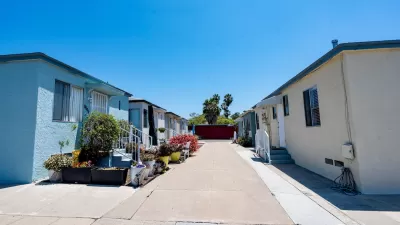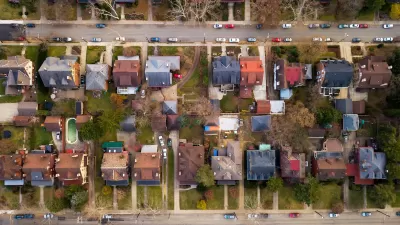Tacoma, Washington, a city of over 200,000 residents in the Pacific Northwest, is making room for more.

The city of Tacoma is considering a law that would allow "Detached Accessory Dwelling Units" in single-family neighborhoods throughout the city.
Rubén Casas reports that the law is receiving support from the public, as shown at a recent public hearing on the proposed law.
"The idea to allow more greater [sic] numbers of 'Detached Accessory Dwelling Units,' or DADUs, was first taken up by the city in December 2017 as part of the city’s larger Residential Infill Pilot Program. Since then, accessory dwelling units have been permitted as part of a pilot program," according to Casas.
Casas also provides an explanation of accessory dwelling unit as a housing policy tool to address housing affordability concerns—even in suburban communities like Tacoma. Particularly telling about the huge impact incremental changes to zoning codes can potentially achieve, Casas rights about the potential benefits of accessory dwelling units:
More housing options like ADUs can mean the difference between losing one’s home because a homeowner can no longer afford a mortgage and being able to keep their home because they have an additional source of income; a DADU permits senior citizens the opportunity to age in place; a DADU makes it possible for a child to return home after college or after losing a job in an economy where the cost of college doesn’t match the earning power of college graduates; DADUs, as they are rented at a lower price than market-rate apartments, allow working-class and members of the service industry to live near their workplaces.
FULL STORY: Tacoma Says ‘Yes” to Cottages in its Backyard

Planetizen Federal Action Tracker
A weekly monitor of how Trump’s orders and actions are impacting planners and planning in America.

San Francisco's School District Spent $105M To Build Affordable Housing for Teachers — And That's Just the Beginning
SFUSD joins a growing list of school districts using their land holdings to address housing affordability challenges faced by their own employees.

The Tiny, Adorable $7,000 Car Turning Japan Onto EVs
The single seat Mibot charges from a regular plug as quickly as an iPad, and is about half the price of an average EV.

Trump Approves Futuristic Automated Texas-Mexico Cargo Corridor
The project could remove tens of thousands of commercial trucks from roadways.

Austin's First Single Stair Apartment Building is Officially Underway
Eliminating the requirement for two staircases in multi-story residential buildings lets developers use smaller lots and more flexible designs to create denser housing.

Atlanta Bus System Redesign Will Nearly Triple Access
MARTA's Next Gen Bus Network will retool over 100 bus routes, expand frequent service.
Urban Design for Planners 1: Software Tools
This six-course series explores essential urban design concepts using open source software and equips planners with the tools they need to participate fully in the urban design process.
Planning for Universal Design
Learn the tools for implementing Universal Design in planning regulations.
Smith Gee Studio
City of Charlotte
City of Camden Redevelopment Agency
City of Astoria
Transportation Research & Education Center (TREC) at Portland State University
City of Camden Redevelopment Agency
Municipality of Princeton (NJ)





























